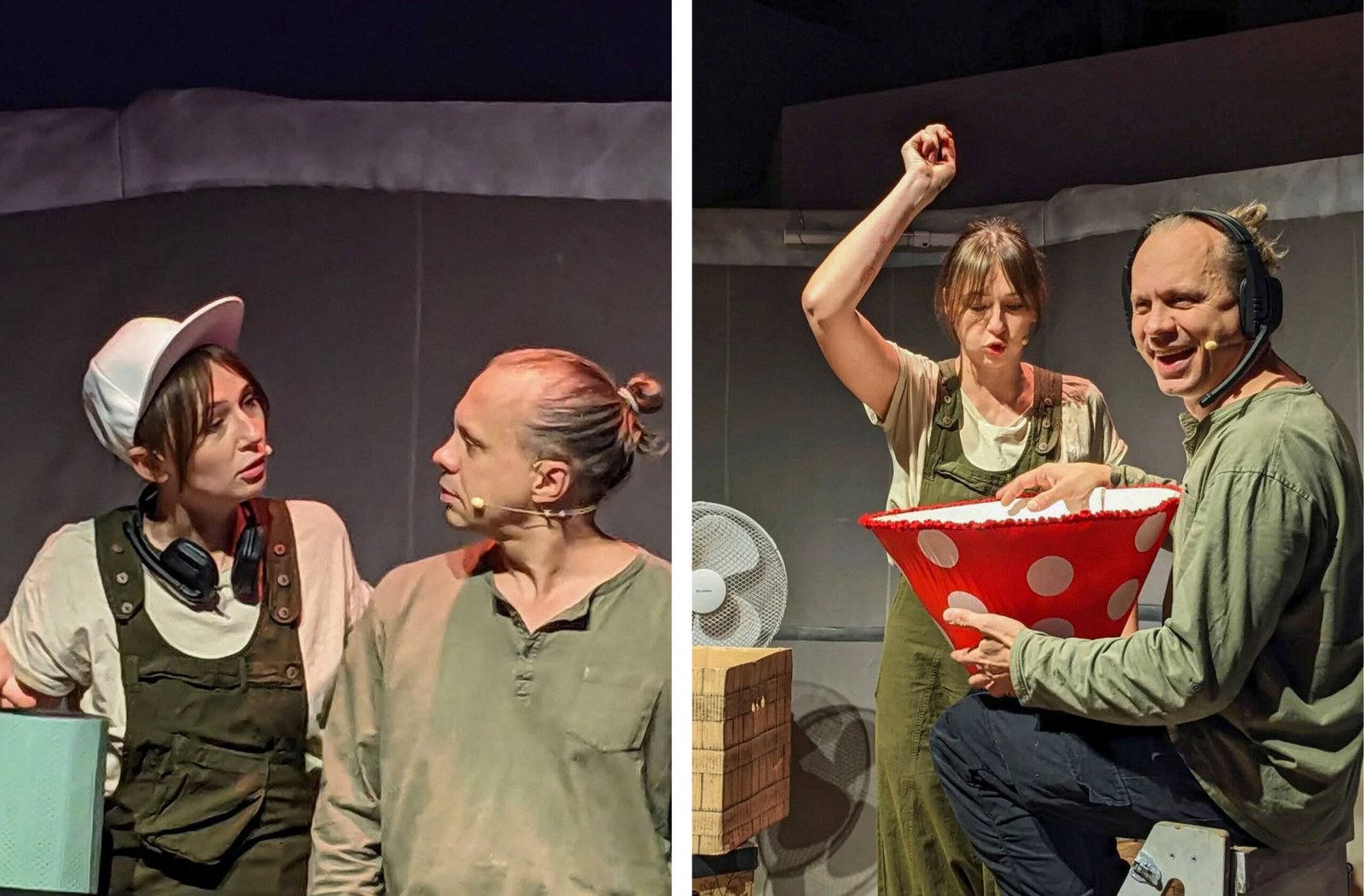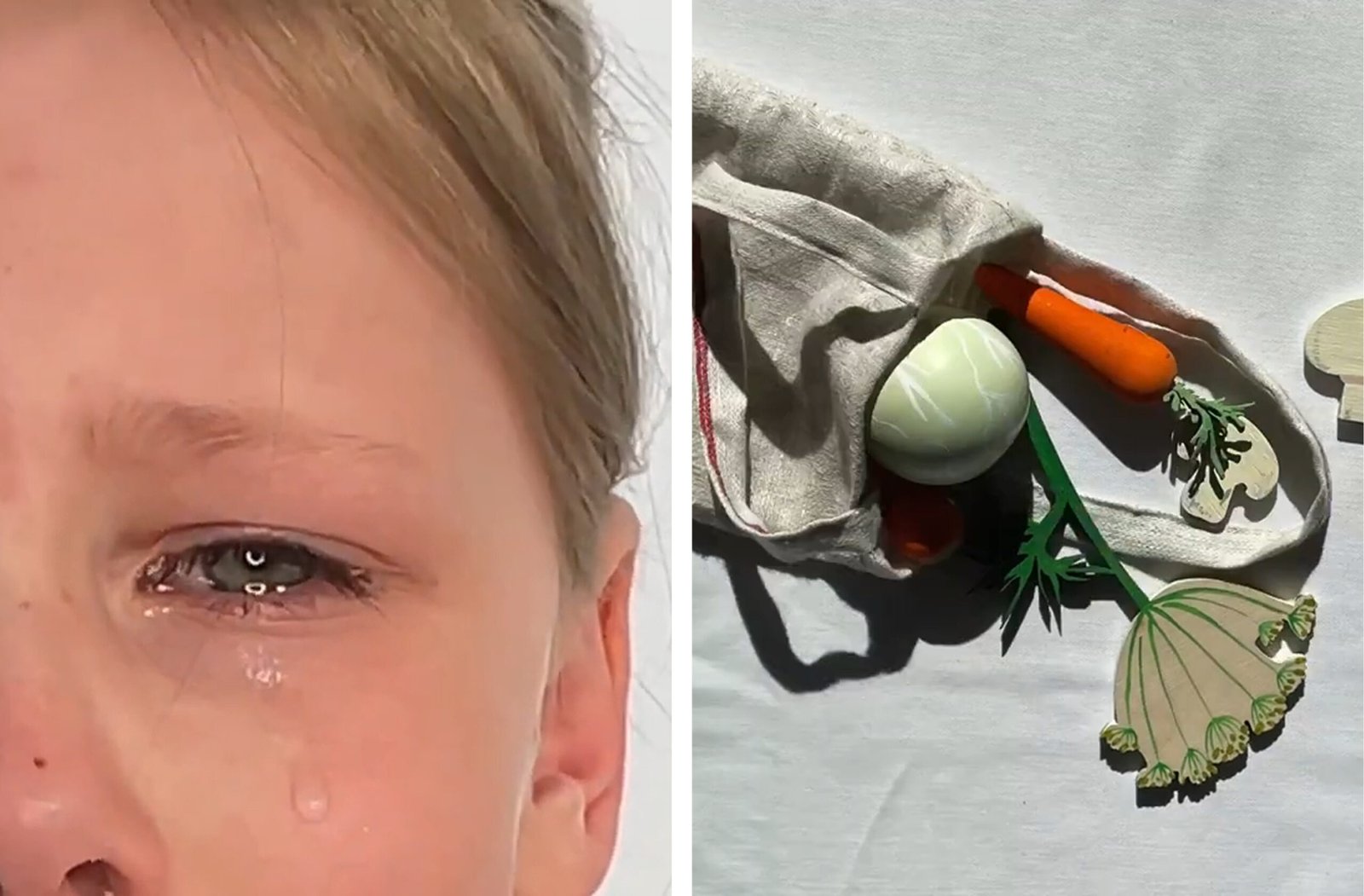Aliaksandr Yandzheyeuski is an actor and director who worked for over 20 years at the Hrodna Regional Puppet Theater. In 2020, he staged his first production for adult audiences together with his wife, a set designer. Then everything turned upside down: protests, dismissal, inability to work, detention, and forced emigration.
Today, he’s directing plays again not in his hometown, but in Białystok. What matters most is that he does so with passion and for an audience. ArtPower Belarus helped make that possible.

From theater to forced isolation
“I worked in the theater for over twenty years as an actor, stage director, and host of concerts. In 2020, my wife and I staged the play Vanilla Ice Cream with Lemon based on Bradbury. It was my debut work as a director.”
After the elections, Aliaksandr joined the protests.
“I tried to organize a dialogue between the people and the authorities. It didn’t work. And then dismissal. I was called into the director’s office and told: ‘There’s an order to fire you.’ They even offered to let me finish performing in the New Year’s children’s shows, but I thanked them and left.”
A few months later, Aliaksandr lost more than just his job at the theater. All government institutions terminated contracts with his sole proprietorship. No organization wanted to work with him.
“I tried to get a job at a sanatorium, everything had already been agreed upon, the plans were in place. But after they received my background information, they refused.”
In 2023, he was detained. “When I was leaving the office, I said, ‘Goodbye.’ And they replied, ‘We’ll meet again.’ That’s when I realized I had to leave. In July, my family and I moved to Białystok.”
Starting over: returning to an idea left unrealized
Together with his wife and actress Nastassia Sukhonosik, Aliaksandr decided to return to an idea they had nurtured even before emigration. It all began when, after being dismissed from the Hrodna Puppet Theater, they tried to apply for a cultural grant competition. The plan was simple yet touching: to create a puppet animation project based on stories by Belarusian writer Volha Hapeyeva.
Aliaksandr’s wife crafted the puppets, the music was composed by their friend and colleague Vital Liavanau, and the videos were filmed in the most improvised way using children’s toys and household items. However, in 2022, everything came to a halt: the war began, funding dried up, and the dream remained only in sketches and unfinished attempts.

“Back then, we wanted to create an animated project. We had the puppets, the music, the idea. Now, we brought it to the stage. It was an attempt to return to ourselves through those characters, through the stories we loved and poured our emotions into,” he explains.
When the family found themselves in Białystok, where many of their friends and colleagues also lived, the sense of community and support gave them hope again. Aliaksandr and his wife decided to return to the idea but this time as a stage performance. At that moment, ArtPower Belarus announced a new call for project funding, and Aliaksandr decided to take the risk:
“It felt like pulling ourselves out of the swamp by our own hair. We submitted the application, went through all the selection stages, and received €5,000 in funding.”
With these funds, they began work on the play. Rehearsals took place literally on the floor, between the table and the kitchen sink. Everything was built from scratch, without any financial reserves, in a rented apartment, where one of the rooms doubled as a living space and a workshop for set design.

“My wife made the decorations and puppets right in the room where we slept. Living in your workshop is hard, exhausting, frustrating but the result was worth it. It wasn’t just a play. It was our exhale.”
A play that gathered 500 viewers and marked a turning point
The performance Sad Soup will Land in Hrodna turned out to be “small, beautiful, cheerful” in the spirit of Hapeyeva’s works. For the family, it became not only an artistic project but also a form of psychological therapy after two years of persecution and decline.
The shows took place in Białystok at the Youth Culture House and the Puppet Theater, and later — thanks to a second mobility grant — in Kraków, Wrocław, the Museum of Free Belarus, and even at a kindergarten with Belarusian-language instruction. In total, more than 500 people attended the performance.
“It was important to me that so many Belarusians were able to see it for free. That was my greatest joy,” says Aliaksandr.
The performance became a source of new life: it helped them reappear on the cultural map of the Belarusian diaspora and brought hope that their creative work was far from over.
From One Performance to an Art School
Today, Aliaksandr works with children and teenagers in Białystok. His studio creates performances, teaches, and helps process trauma through creativity.
“Not everyone will go to a psychologist. But through the stage, through roles, through drawing, one can process, cry out, and feel.”
He plans to open an Art School for children, teenagers, and adults.
“We already held a theater workshop for adults and filled the group in just three days. There’s demand for this. I want the school to include painting, stage speech, and art therapy because people truly need it.”
“A grant is like a mirror. You write and suddenly understand what you want.”
For Aliaksandr, the process of writing a grant application turned out to be a revelation:
“If you have an idea, look for a way to make it happen. And if you don’t that’s okay. In the process of writing the application, the idea will find you. It’s like a mirror: as you write, you begin to understand what you really want. And even if you get rejected, you already have a written text that you can submit somewhere else.”
For those afraid to participate in grant competitions, Aliaksandr gives this advice:
“Don’t listen to anyone. Just try. Even if you get a rejection, you’ll already have a complete text you can send elsewhere. And most importantly don’t be afraid to ask for help. Every project needs a manager, an SMM specialist, a team. Don’t carry it all on your own. And remember: a grant is not just about money. It’s about meaning. It’s about the chance to express yourself and be heard.”
This project was made possible with the support of the ArtPower Belarus program, implemented by the Belarusian Council for Culture and the Danish Cultural Institute with funding from the European Union.
On August 19, 2025, the application process for Track 3 of the ArtPower Belarus program was launched. This is a grant competition for cultural projects by Belarusian artists and initiatives who are facing force majeure or challenging circumstances: repression, loss of funding, forced emigration, health problems, and other unforeseen situations.
More details here.

